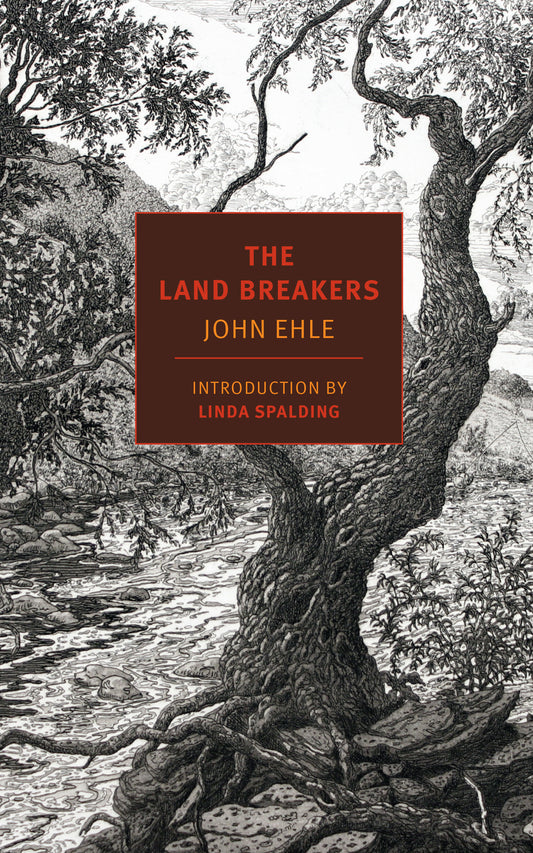NYRB NEWS
NYRB Poets Showcase at the New York City Poetry Festival
Paul Eprile wins the French-American Foundation's 2018 Translation Prize
We are excited to announce that Paul Eprile, translator of the NYRB Classics edition of Jean Giono's Melville: A Novel, has been named one of the winners of the 2018 Translation Prize, awarded by the French-American Foundation. Learn more about the prize here.
NYR Comics, Yvan Alagbé, and Chris Reynolds at Toronto Comic Arts Festival (TCAF)
New York Review Comics will be attending the 2018 Toronto Comic Arts Fair (TCAF) and a couple of NYRC artists will be there for events and book signings as well. Visit the NYR Comics tables in the exhibit hall (#109 and #110) to see the latest NYRC titles and talk to NYRC staff and check out the following events with Yvan Alagbé, author of Yellow Negroes and Other Imaginary Creatures, and Chris Reynolds, author of The New World: Comics from Mauretania.
BOOK SIGNINGS at NYR Comics table:
Yvan Alagbé
Saturday, May 12, from 2-3pm
Sunday, May 13, from 2-3pm
Chris Reynolds
Saturday, May 12, from 12-1pm
Sunday, May 13, from 1-2pm
SPECIAL EVENTS:
Saturday, May 12, 11am: "Contemporary French Comics" panel w/ Yvan Alagbé in the High Park Ballroom #2/3 in the Marriott Bloor Yorkville.
Saturday, May 12, 11am: Spotlight on Chris Reynolds & Seth, editor and designer of The New World, in the Toronto Reference Library, 1st Floor.
Saturday, May 12, 4pm: Spotlight on Yvan Alagbé with Mark Nevins, in the High Park Ballroom #1 in the Marriott Bloor Yorkville.
Sunday, May 13, 11am, "Finding Your Publishing Niche," a panel with Yvan Alagbé, Francoise Mouly, and others in the High Park Ballroom #1 in the Marriott Bloor Yorkville.
For more information, visit our events page.
Teffi's 'Memories' wins 2018 Read Russia Prize

John Ehle, 1925-2018
Paul Eprile, Finalist for the 2018 French-American Foundation Translation Prize
Congratulations to Paul Eprile who has just been announced as a finalist for 2018 French-American Foundation Translation Prize for his work on Jean Giono's Melville: A Novel. The winner of the prize will be announced at the awards ceremony, which will be held on Friday, May 11 in New York City.
To see a full list of finalists, visit the French-American Foundation website here.
Len Rix wins the 2018 PEN Translation Prize
Hearty congratulations to Len Rix, who was just announced the winner of the 2018 PEN Translation Prize for his translation of Magda Szabó's novel Katalin Street.
From the judges’ citation: “The jury is proud to honor Len Rix’s exceptional translation of Magda Szabo’s novel Katalin Street, which tracks the intertwined lives of three Budapest families before and after the devastation of World War II. This beautiful translation illuminates Szabo’s deep humanity. Translating Katalin Street‘s intricate, elegant text required tremendous subtlety and artistry to achieve such flawlessness, and Rix clearly possesses the mastery to allow Szabo herself to stand out as an exemplary writer. This translation from the Hungarian does that, and Len Rix has gained lifelong admirers among the jury.”
To see the other winners of the 2018 PEN Literary Awards, click here.
NYRB on the "Best of 2017" Lists
2018 is in full swing now, but we're still excited that several books from NYRB made the "best-of" lists at the end of last year. Here's a handful of the selections:
In The New Statesman's "Best Books of the Year, 2017," Geoff Dyer writes, "My favourite discovery this year was the reissue of Eve Babitz's Slow Days, Fast Company: The World, the Flesh and LA. First published in 1977, it’s a collection of linked, neurotically funny, autobiographical stories about the kind of stuff you would expect from southern California in the 1970s. The sensual pleasures of the prose are overseen by a blue-sky metaphysics....There’s no satire here – that would be too easy. It is more like a series of intoxicated love letters that have the potential to become an endlessly postponed suicide note."
In Bookforum's "Hit Parade: Writers Choose the Best Books of the Year," Sheila Heti writes, “One of my favorite books from 2017 is the reprint of Difficult Women, by David Plante. Though some reviewers found Plante’s book ‘morally indefensible,’ this objection sounds more like a veiled judgment of his subjects.... It’s funny, original, and risky, and it concludes with an index comparing the three subjects on such matters as abortion, alcohol, and animals; an amusingly absurd end.”
In NPR.com's "2017's Great Reads," Etelka Lehoczky writes, "Here's a terrific example of the current wave of great comics from Europe. Dominique Goblet's approach [in Pretending is Lying] is postmodern, with a scruffy, anything-goes mix of styles and moods, but it's marked everywhere by her forays into photography. She intersperses her tale – an autobiographical account of family, a lover, truth, lies and brutality – with images that look like photos."
And Chris Raschka's The Doorman's Repose made Publishers Weekly's "Best Middle Grade Books of the Year"—here's what they say: “Raschka brings readers to Manhattan's Upper East Side in this delightful novel told through linked stories, set in and around a fictional apartment building. With a quasi-sentient elevator and stories about mice families and city-mandated opera singers, it's an off-kilter vision of New York City that feels simultaneously true in its bones."
Here's to more good books in 2018!

